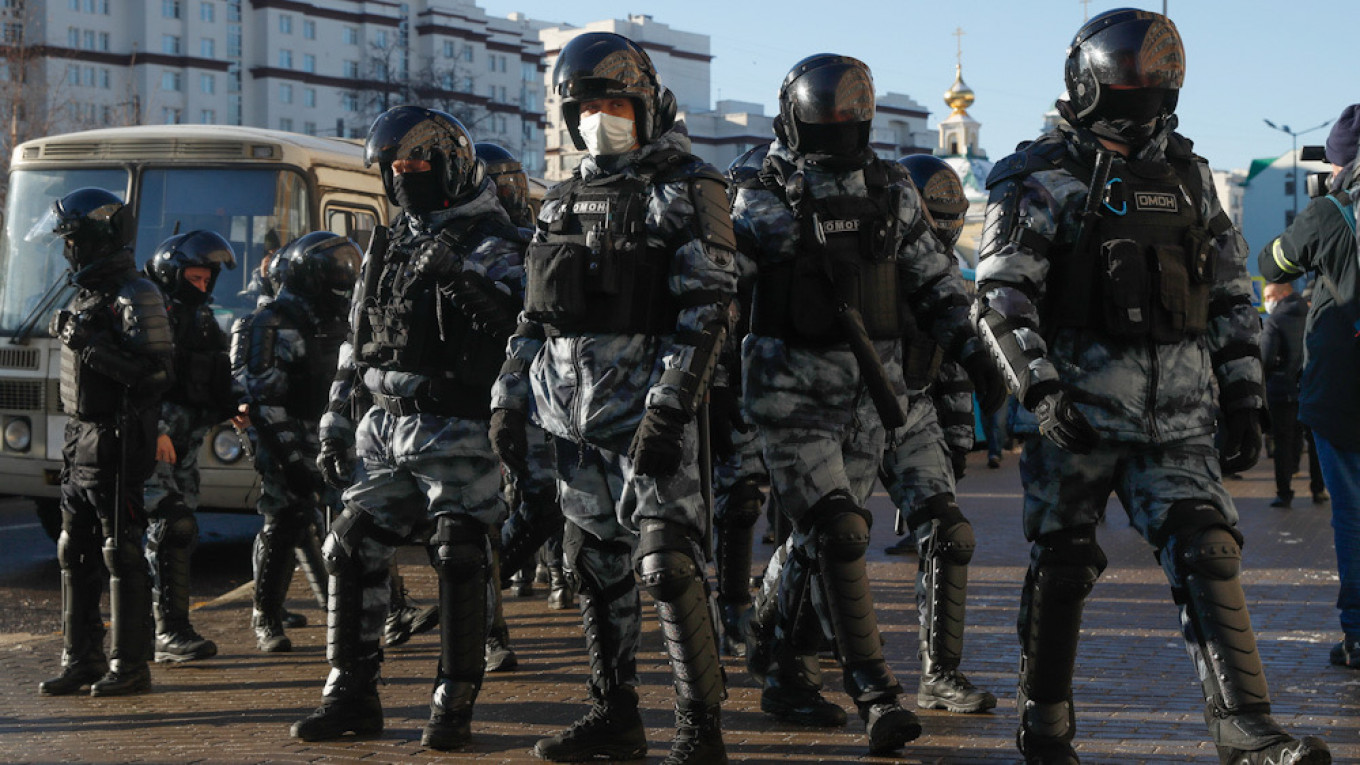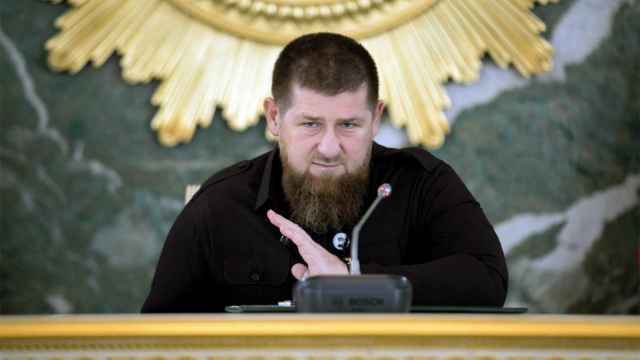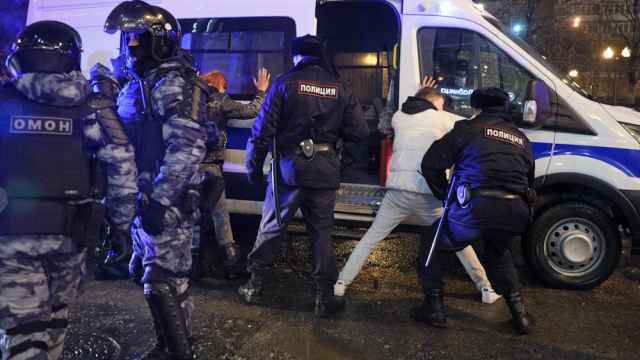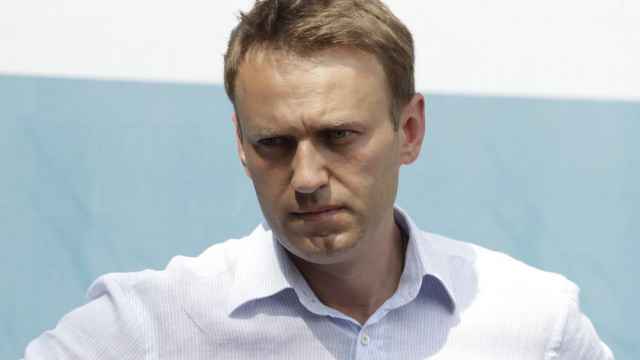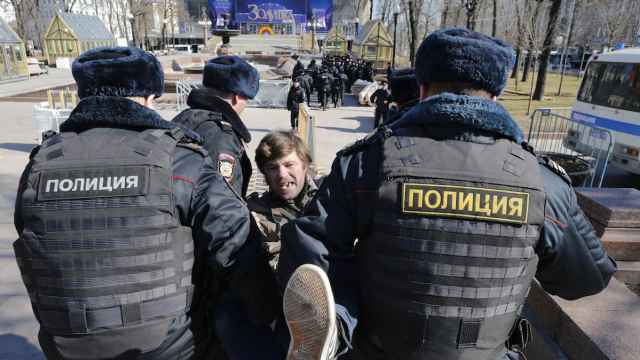Law enforcement authorities warned Russians Thursday not to take part in Valentine’s Day courtyard protests in support of jailed opposition leader Alexei Navalny.
Navalny’s team has called on supporters to hold up their cellphone flashlights in their residential courtyards for short intervals to avoid the kind of crackdown that followed a wave of mass nationwide rallies in recent weeks.
A separate team of activists announced a “Chain of Solidarity and Love” in central Moscow Feb. 14 in support of Navalny’s wife Yulia and other women subjected to political prosecution.
Russia’s Interior Ministry, Investigative Committee and Prosecutor General’s Office issued simultaneous and similarly worded online statements warning that calls for and participation in mass actions are illegal.
The Interior Ministry and Investigative Committee said protesters risk civil and criminal liability for taking part in unlawful assemblies.
“Restrictive measures are still in place in the regions due to the difficult epidemiological situation,” said the Interior Ministry, warning that it will detain protesters and those who incite them.
“Don’t forget that involving minors in committing illegal actions that knowingly endanger their lives is a criminal offense,” said the federal investigative body.
The prosecutor’s office said the calls online urge participation in “mass public events organized in violation of established procedure.” It also warned of steep fines for internet companies and social media networks that fail to remove calls for mass riots.
Russian police said at least 90 criminal cases have been opened in connection with the recent weeks’ rallies.
The nationwide demonstrations saw an estimated 12,000 detentions and a harsh police crackdown. Several of Navalny’s key allies were jailed, some of them repeatedly, ahead of the mass demonstrations.
The Kremlin said this week it “won’t play cat-and-mouse” with the protesters planning to take part in the courtyard flashlight flashmob.
“Our law enforcement officers will bring perpetrators to justice if they violate the law,” President Vladimir Putin’s spokesman Dmitry Peskov told reporters Tuesday.
A Message from The Moscow Times:
Dear readers,
We are facing unprecedented challenges. Russia's Prosecutor General's Office has designated The Moscow Times as an "undesirable" organization, criminalizing our work and putting our staff at risk of prosecution. This follows our earlier unjust labeling as a "foreign agent."
These actions are direct attempts to silence independent journalism in Russia. The authorities claim our work "discredits the decisions of the Russian leadership." We see things differently: we strive to provide accurate, unbiased reporting on Russia.
We, the journalists of The Moscow Times, refuse to be silenced. But to continue our work, we need your help.
Your support, no matter how small, makes a world of difference. If you can, please support us monthly starting from just $2. It's quick to set up, and every contribution makes a significant impact.
By supporting The Moscow Times, you're defending open, independent journalism in the face of repression. Thank you for standing with us.
Remind me later.


